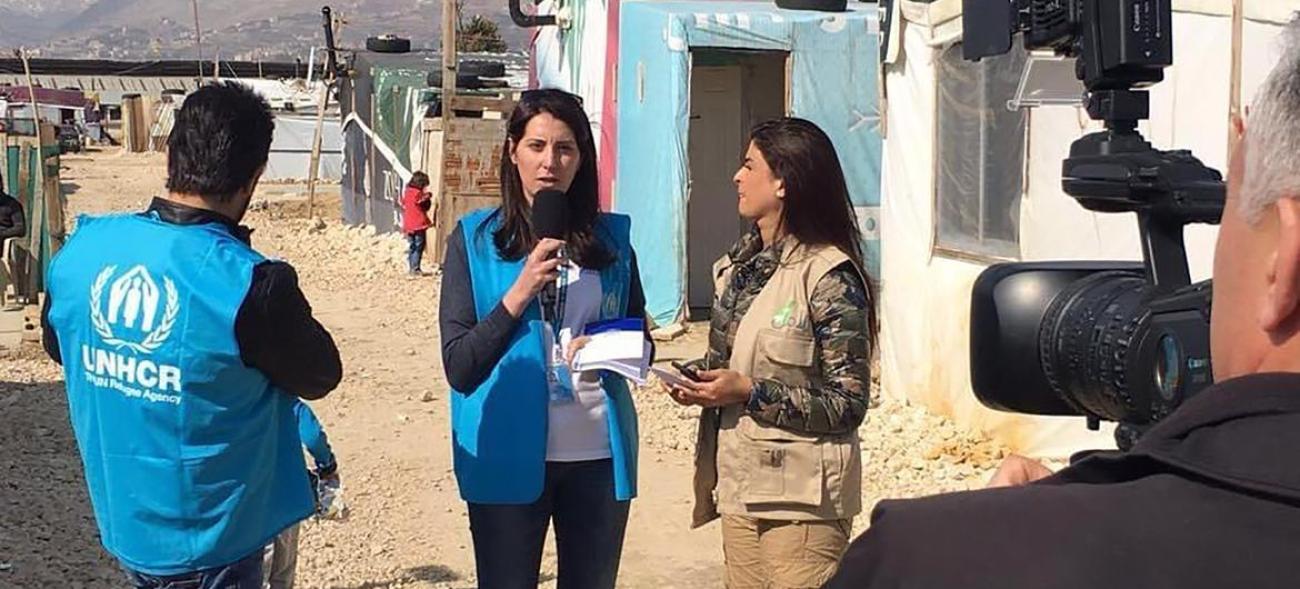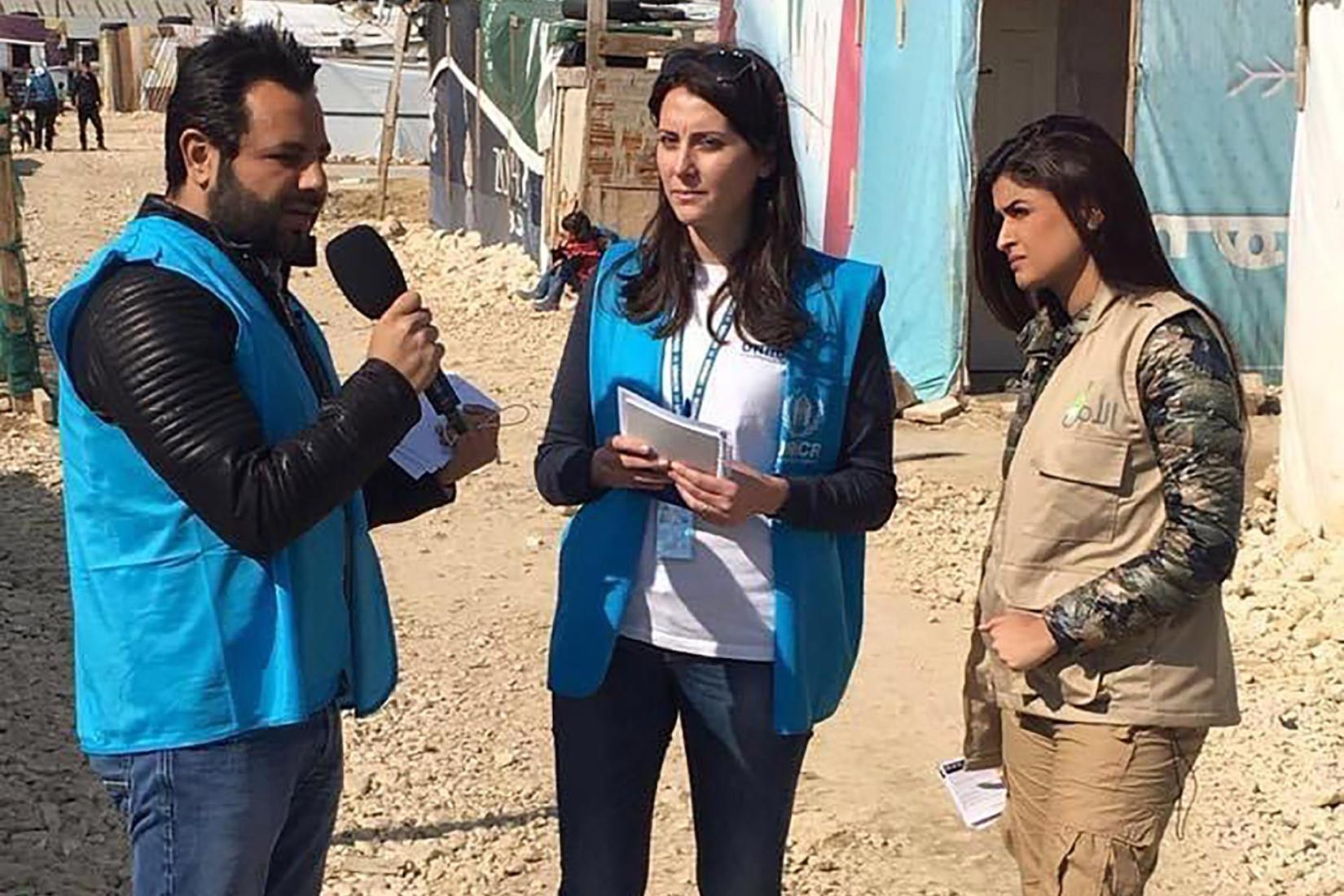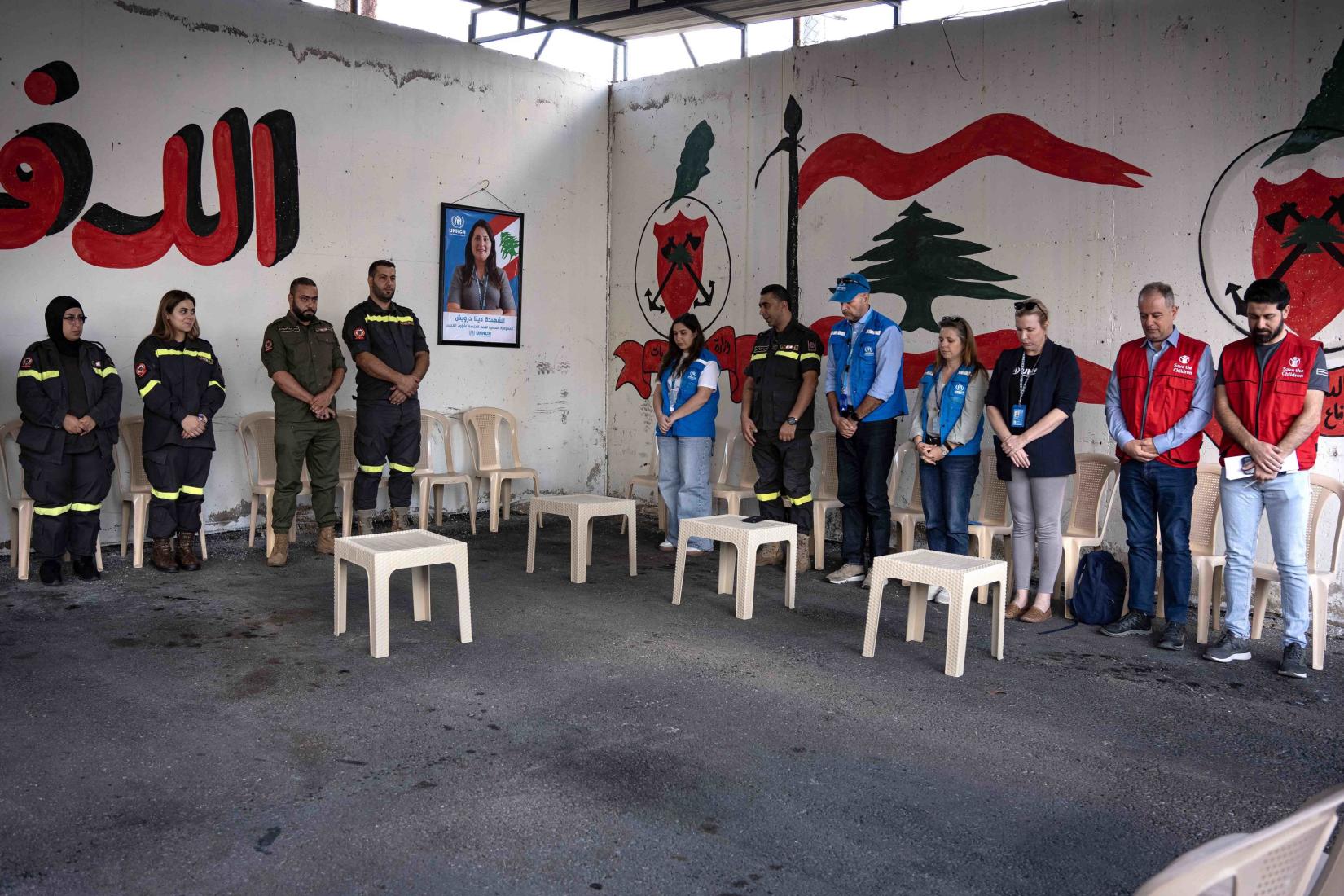"In Memory of Dina": On International Women's Day, A message of Pain & Hope from Lebanese Mother to Women in Conflict Zones

A Lebanese Mother Speaks of Loss and Sends a Message to Women in Conflict Zones.
“Dina was exceptional in every way—passionate about everything she did, and everything she did came from the heart. Her work with the United Nations was a mission to serve others.”
This is how Mrs. Ghada Darwish described her daughter Dina—her colleague at the United Nations High Commissioner for Refugees (UNHCR), who was killed during the Israel-Hezbollah war in 2024 in Lebanon.
Dina Darwish worked with UNHCR for 12 years at the Bekaa office. She and her youngest son were killed when the residential building where she lived with her husband and two children was hit by an Israeli missile on September 23 of last year.
In an interview with UN News, Mrs. Ghada Darwish said: “The greatest pain you can ever feel is losing your own child. No matter how much you try to adapt to the idea of loss, the pain remains immense.”
It is difficult to sum up a child’s life in just a few minutes, but Mrs. Ghada tried her best to stay composed to speak about her own child, Dina. Despite being unable to hold back her tears, she insisted on talking because her ultimate goal is “not to forget Dina—she wants her to remain close to hearts, minds, and memories.”
“Dina was exceptional in every way, passionate about everything she did. Everything she did was from the heart, from her studies to university and her work. She never settled for half-measures—she was a true professional.”
Mrs. Darwish said that Dina always wanted her voice to be heard in her work so she could change the world and help as many people as possible. Thanks to her specialization in social sciences, she worked against gender-based violence and protected children, especially during her tenure with UNHCR.
Throughout her career, she helped many families, children, and women by relocating them to safer and more peaceful environments—away from the conflict, displacement, violence, and poverty they had endured.
Mrs. Ghada Darwish also spoke about Dina’s friendships and her impact on the community. “In her work, she built strong friendships with many of her colleagues. She made everyone feel special and unique. But tragically, she fell victim to violence—violence she had no part in and no connection to. What happened was a great injustice.”

The violence also claimed the life of Dina’s four-year-old son, Jad, who was described by his grandmother as “a special child whose smile never left his face. He was curious, full of life and energy. Everyone who knew Jad fell in love with him—his eyes sparkled, and he gave so much love and warmth.”
Ghada continued the conversation, trying to explain how living in a conflict zone or war-torn area is incredibly difficult—especially for mothers who must protect and reassure their children while raising them with love for their homeland and instilling good values in their daily lives.
“I always supported the idea that love for one’s country should be in our hearts. I always hoped for a better tomorrow and believed, as a woman and a mother, that I should instill that hope in my children so they could continue this journey, dream, and strive for a better future. I never imagined that we would reach this point in our country.”
On International Women’s Day, Ghada’s message to women around the world—especially those who have lost loved ones in war—is one of solidarity, strength, and hope.
“We must not despair; we must not stop. This loss should not halt our lives. We must be beacons of resilience. The world sees itself through us, and that’s why we must hold on to courage and keep fighting for our families.”
She concluded her speech by saying: “Despite the pain we feel, we must transform this pain into love and struggle to stop wars around the world. To every woman out there: You are strong, you are important, you are the backbone of your family, and you are its pillar of support.”
The two-month conflict in 2024 in Lebanon between Hezbollah and Israel resulted in the deaths of more than 4,000 people, with at least 16,600 others injured, and led to the displacement of hundreds of thousands amid widespread damage to infrastructure.

The interview was conducted by Mrs. Rana Sarkis, and the story was initially published in Arabic by UN News.


